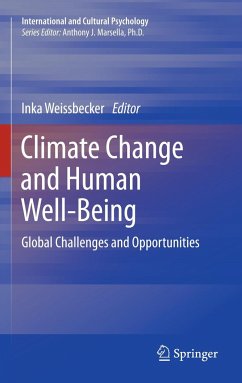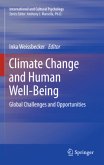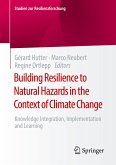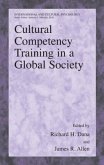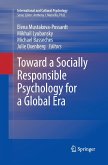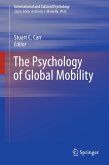Climate change is increasing the severity of disasters and adverse weather conditions worldwide, with particularly devastating effects on developing countries and on individuals with lower resources. Climate change is likely to impact mental health and psychosocial well-being via multiple pathways, leading to new challenges. Direct effects such as gradual environmental changes, higher temperatures, and natural disasters, are likely to lead to more indirect consequences such as social and economic stressors, population displacement, and conflict.
Climate change, largely the product of industrialized nations, is projected to magnify existing inequalities and to impact the most vulnerable, including those with low resources, individuals living in developing countries and specific populations such as women, children and those with pre-existing disabilities. This book outlines areas of impact on human well being, consider specific populations, and shed light on mitigating the impact of climate change. Recommendations discuss ways of strengthening community resilience, building on local capacities, responding to humanitarian crises, as well as conducting research and evaluation projects in diverse settings.
Although climate change is mainly caused in industrialized nations, the impact of climate change has spread across the globe, among developing countries and the world s most vulnerable populations. While the public health effects of environmental degradation and the resulting natural disasters are well-known, less is understood about their mental health impact and psychosocial well-being, and what types of interventions may best minimize the damage.
Climate Change and Human Well-Being identifies the psychological responses and mental health impacts that accompany gradual environmental change and extreme weather events, and explains how climate change exacerbates existing inequities. Painstakingly researched, with extensive worldwide findings and instructive examples from the experiences of those affected by climate-change, this groundbreaking volume also examines the potential for collaboration among diverse sectors of society in responding to environmental crisis. Experts provide guidance for researchers, practitioners, policymakers, and the humanitarian aid community as they:
Explain the relationship between environmental crisis, socioeconomic stressors, and psychological distress .Discuss the impact of acute and chronic extreme weather conditions on mental health and well-being.Analyze the short-and long-term effects of climate change on specific populations, and environmental refugees.Identify implications of climate change for peace, conflict, and stability.Demonstrate the importance of cultural competence in relief efforts.Include recommendations at the local, national, and global levels.Climate Change and Human Well-Being offers cross-cultural psychologists, psychiatrists, social workers, and professionals in related fields a greater understanding of complex issues, and new opportunities to engage in the emerging dialogue within and across the disciplines.
Climate change, largely the product of industrialized nations, is projected to magnify existing inequalities and to impact the most vulnerable, including those with low resources, individuals living in developing countries and specific populations such as women, children and those with pre-existing disabilities. This book outlines areas of impact on human well being, consider specific populations, and shed light on mitigating the impact of climate change. Recommendations discuss ways of strengthening community resilience, building on local capacities, responding to humanitarian crises, as well as conducting research and evaluation projects in diverse settings.
Although climate change is mainly caused in industrialized nations, the impact of climate change has spread across the globe, among developing countries and the world s most vulnerable populations. While the public health effects of environmental degradation and the resulting natural disasters are well-known, less is understood about their mental health impact and psychosocial well-being, and what types of interventions may best minimize the damage.
Climate Change and Human Well-Being identifies the psychological responses and mental health impacts that accompany gradual environmental change and extreme weather events, and explains how climate change exacerbates existing inequities. Painstakingly researched, with extensive worldwide findings and instructive examples from the experiences of those affected by climate-change, this groundbreaking volume also examines the potential for collaboration among diverse sectors of society in responding to environmental crisis. Experts provide guidance for researchers, practitioners, policymakers, and the humanitarian aid community as they:
Explain the relationship between environmental crisis, socioeconomic stressors, and psychological distress .Discuss the impact of acute and chronic extreme weather conditions on mental health and well-being.Analyze the short-and long-term effects of climate change on specific populations, and environmental refugees.Identify implications of climate change for peace, conflict, and stability.Demonstrate the importance of cultural competence in relief efforts.Include recommendations at the local, national, and global levels.Climate Change and Human Well-Being offers cross-cultural psychologists, psychiatrists, social workers, and professionals in related fields a greater understanding of complex issues, and new opportunities to engage in the emerging dialogue within and across the disciplines.
From the reviews: "This book presents evidence on the likely psychosocial and mental health impacts of climate change, as well as mental health recommendations for prevention, preparedness, and response. The intended audiences include mental health professionals, researchers, humanitarian workers, policy makers, and students in these fields. Climate Change and Human Well-Being: Global Challenges and Opportunities is organized into three sections, with 11 chapters in total." (Gregory H. Wilmoth, PsycCRITIQUES, Vol. 57 (15), April, 2012)

